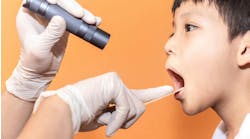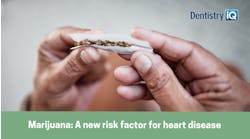Dentists and their staff often find themselves scratching their heads when coding and documenting emergency visits. Much of that confusion stems from the use of D9110, palliative treatment of dental pain. Proper use of this dental code can ensure that a practice is accurately reimbursed by insurance when the time comes to bill the visit out.
Related reading:
What is a palliative treatment?
To put it simply, palliative treatment is used to alleviate the symptoms of pain/discomfort for a patient without solving the underlying condition. Palliatives are required to be hands-on and should not be coded in conjunction with final restorations being performed on the same tooth/area on the same day. Unlike other procedure codes, D9110 is vague and encompasses a lot of treatments that can help a patient in pain. It should be used when use of a more specific dental code wouldn’t be reasonably applicable.
A few common scenarios where use of D9110 is appropriate are as follows:
- Removal of food impaction that may be causing gingival inflammation
- Administering local anesthetic to help temporarily relieve pain
- Removal of decay and placement of intermediate restorative material (IRM), pending a permanent restoration
- Smoothing the sharp edge of a broken tooth or restoration
- An adjustment to take a tooth out of occlusion, pending a permanent restoration
When should D9110 not be used?
If the service being performed is defined by another CDT code, a palliative treatment shouldn’t be recorded. Palliatives should also not be coded if the service provided wasn’t hands-on.
Here are a few common examples of when it wouldn’t be appropriate to use D9110:
- Incision, drainage and irrigation of a periodontal abscess. In this scenario, D7510 (incision and drainage of abscess) and D4921 (gingival irrigation with medicinal agent) should be used.
- Treatment of post-operative complications. More often than not, treatments like these are expected to be covered with the reimbursement for the original procedure. The proper code would be D9930 (treatment of postsurgical complications). If treating a complication from a procedure done at another office, this should be specified in the clinical note.
- Application of a desensitizer to an exposed root. Here, D9910 (application of desensitizing medicament, per visit) should be used.
- Writing a prescription following a limited exam (D0140). This isn’t a hands-on service, and trying to bill it as a palliative wouldn’t qualify for reimbursement.
What codes commonly accompany D9110?
A common misconception is that practices can’t bill a D0140 (limited exam) on the same visit as a palliative. Per the ADA, they absolutely can! Some insurances may have some limitations or exclusions preventing this, but if an examination was done on the same day as the palliative, both codes should be entered. It’s perfectly fine to bill out any x-rays taken that day, as well.
Another common misconception is that palliatives can’t be billed on the same day as a restoration/treatment performed on a completely different tooth or area of the mouth. As long as the clinical note summarizes this distinction, the other code and a D9110 can both be sent to insurance.
How should a palliative treatment be documented?
As with other dental codes, having a narrative that supports the procedures done at a visit is key for ensuring insurance reimbursement. Tooth numbers and/or areas of the mouth treated need to be recorded, as should methods utilized and any materials that may have been used. The nature of the pain and a rating on a scale of 1–10 should be documented as well. It’s good practice to notate future treatment recommendations for curing the underlying cause of the patient’s pain, and any postvisit instructions given.
Shaheen Hadjimaleki, founder of Alaka’i Dental Solutions, was the recipient of the 2020 NNOHA Oral Health Champion Award for building a nonprofit dental program during the COVID-19 pandemic on the rural North Shore of O’ahu, Hawai’i. With more than a decade of ongoing experience in dental service management, program development, and revenue cycle management, he works as a private consultant in his spare time. He is currently pursuing further education at the University of Colorado with the goal of becoming a dentist. Shaheen can be reached at [email protected].






